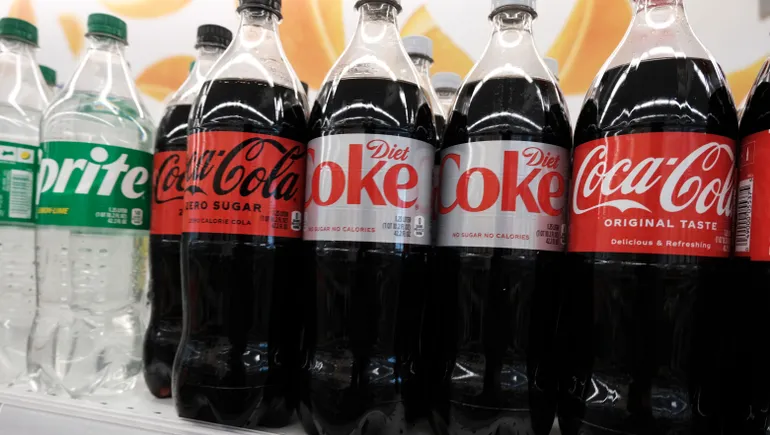Dive Brief:
- Coca-Cola’s annual plastic use will surpass 9.1 billion pounds by 2030, according to a new report published this week by nonprofit Oceana. This amount would signify a 40% increase in the company’s total plastic use compared to 2018 and a 20% increase over its most recently reported plastic use in 2023.
- According to the report, if Coca-Cola increased its level of reusable packaging to 26.4% by 2030, the company could reduce its overall plastic use.
- Despite campaigns to increase reusable plastic in the 2010s, Coca-Cola has shifted to new packaging goals in recent months. Last December, the soda maker scaled back a previously announced goal to increase its reusable packaging to 25% of products sold.
Dive Insight:
Coca-Cola has long drawn the ire of environmental groups for its packaging practices. The backlash only intensified after it changed its packaging goals in 2024.
New goals are not about reusable packaging, though Coca-Cola said it “intends to continue to invest in refillable packaging where the infrastructure already exists.” The company set a goal to increase the recycled material to 35% to 40% in its primary packaging (plastic, glass and aluminum) by 2035.
Only 23% of Coca-Cola’s plastic packaging was reusable in 2023, according to data from the Ellen Macarthur Foundation.
In Oceana’s report, the nonprofit called on the company’s investors to urge the Coke Zero maker to replace single-use plastic bottles with reusable packaging. The group cited a study published by Science last year that found the company produces the most plastic found polluting the environment.
“Investors must understand that Coca-Cola’s persistent reliance on plastic is exacerbating pollution, environmental degradation, and climate change,” Oceana said. “They must put pressure on the company to reduce its use of plastic through increasing reusable packaging.”
In a statement sent to Food Dive, a spokesperson for Coca-Cola said the company focuses on increasing recycled materials in packaging and advocates for policies that support recycling collection infrastructure.
“We know more must be done,” the spokesperson for the soda giant said. “Through collaboration with local and global partners, we will continue to explore new collection models or improve existing ones, invest in local infrastructure and engage with policymakers.”
The beverage giant warned earlier this year it may increase its dependence on plastic due to President Donald Trump’s tariffs.
CEO James Quincey told investors in February that Coca-Cola may boost its use of plastic bottles if aluminum becomes more expensive because of tariffs being placed on countries that produce the material.
The company’s main competitor, PepsiCo, said last year it will not reach the intended 2025 goal to make 100% of its packaging recyclable, compostable, biodegradable or reusable.
Editor's note: This story was updated with comments from Coca-Cola.
Source link
